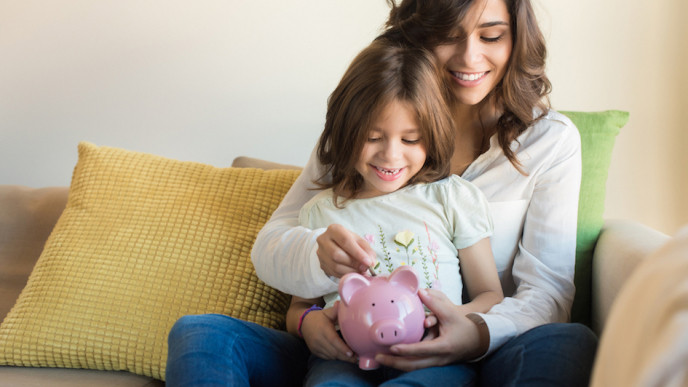My kids are constantly asking me to buy them things. Their requests for everything from gum to fidget spinners never end.
That’s when it occurred to me that it might be time for them to start receiving an allowance. With a little spending money, they can buy things themselves. More importantly, they can learn to manage money and save.
My boys are now seven and eight, and I know they’ve learned about money and change in math class. They should be up for the task.
I earned an allowance when I was a kid. I’d make my bed or help with the dishes and earn a stipend that I’d save in a piggy bank or spend.
Yet I’m wondering if allowances are out of style. I’ve yet to find a friend that gives their kids an allowance. They might make their child “earn” gum or fidget spinners, but they don’t actually pay their child in actual money.
If you do want to give your child an allowance, how do you know how much to give them? What age is the right age to start?
Leading Canadian financial expert Gail Vaz-Oxlade recommends giving your child a dollar per age a week, so my eight-year-old could earn $8 while my seven-year-old could earn $7. This allows them to learn to spend a certain portion and save or donate the rest. You can start as soon as you feel they are ready to grasp the concept, so perhaps around age five or six.
She also says parents shouldn’t make kids “earn” an allowance by tying it to chores around the house. Being helpful at home is the natural cost of being part of a family. Money and chores should be separate, she says. It’s a teaching opportunity. (Good thing I read that!)
If you’re giving an allowance, it’s also important to be consistent. If you say you’re giving an allowance, you must follow through. Have conversations about money so they know how much they’re earning and also what they’re supposed to do with it. Finally, make sure you’re sticking to the rules. Don’t buy them things they are supposed to be buying with their allowance.
The point is to raise financially literate kids, and, according to the experts, it’s never too early to start teaching them.
Do you give your child an allowance? Do they have to earn it by completing chores? I’d love to know!






















I started getting an allowance pretty young. At 10, I had a 20 dollars per week allowance, and by 13, I'd saved up over 2 grand. Not all kids may have the same self restraint though. All went down the drain when I started high school of course. Number one money spender for youth is definitely food. Ate out with friends a lot. Then when I bought a gaming console, I was at a quarter of my savings from 13 lol. When I got a part time job at 16, my allowance stopped too lol. Same age some of my friends STARTED getting an allowance.
My girls (ages 6 and 8) earn an allowance. They each get $10 a week. It is for overall contribution to the household. We have a chart made up so that if they're not following the rules of our house and or getting into trouble at school, that sort of thing, they get a mark on their chart and that is one dollar lost. Payout is after two weeks. They are trying to save their money for a future (its been four years of saving) trip to DisneyWorld, but they are also expected to buy the gifts for their friends if they are attending their birthday parties and for immediate family members on special occassions. They like to spend their money on treats when we are out, and small things like Num Noms and the like. We believe in the combination of give/save/spend.
Yes they should....I did as a child...and I did the same for mine....teaches values....
Yes my daughter does chores and she loves to put her money in her piggy bank :)
On a trip the kids kept asking for things. They were told "you have your money. Do you want to spend it on that?" This was money they earned and they made good decisions on what to spend their money on. They are 4 and 6